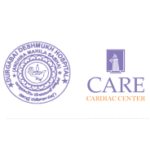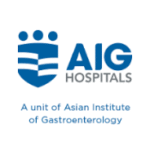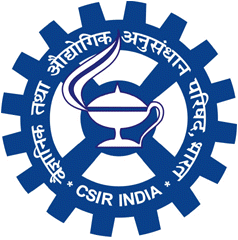Treatments Focus
Recommended Dosing of All Current Medicines

A medicine can be more harmful than helpful if it is not taken in the proper dosage. A dosage (or dose) is the specific amount of a medicine that is known to be safe and effective for an ailment in patient. For the medicine (drug) to be delivered into the body, it is prescribed to be taken in the suitable dosage form. A dosage form can be defined as physical from of the dose chemically compounded as a drug or medicine intended for administration or consumption.
In general, a drug can be administered via different routes into the body. Some examples include:
- Orally – By mouth (E.g. – via tablet or capsule dosage forms)
- Intravenously, Intramuscularly, intrathecally, subcutaneously – Injection given into a vein, muscle, around the spine or beneath the skin, respectively
- Sublingually, buccally – Placed under the tongue OR between the gums & cheek
- Rectally or vaginally – Inserted in the rectum OR vagina
- Nasally – sprayed into the nose
- Inhalation and nebulization – Breathed into the lungs, usually through the mouth OR mouth and nose (nebulization)
- Ocular route or otic route – Placed in the eye OR the ear (E.g. – eyedrops, ointments, eardrops)
- Cutaneously – applied to the skin
- Transdermally – delivered through the skin by a patch
Each route has its own specific purposes, advantages and disadvantages.
How is the recommended dose range usually determined?
Along with the drug – the package insert consists of the recommended dose range that is jointly determined by the pharmaceutical companies and the Food and Drug Administration.
It is associated with human clinical trial experience with the drug and represents the dosage range associated with maximum benefit and minimum risk of adverse effects in the usual patient in the registration clinical trials of the drug.
A physician considers the following factors when selecting the right dose for the patient:
- Indication (Treatment of a particular disease)
- Age
- Renal function (Kidney function)
- Hepatic function (Liver function)
- Weight
- Interactions with other medication (How a drug acts when taken with certain existing medical conditions)
- Side effects
Selecting the wrong dose (Inadequate treatment or overdose):
Every a drug must be taken in just the right amount. If the drug is taken in little or insufficient amount, it can cause the desired outcome to not occur for it to give relief. If the drug is taken in larger amounts, it can lead toxic undesirable side effects and may even worsen the original ailment.
Thus, a doctor carefully analyses the disease state, reports, patient condition (multiple patient-related factors) and prescribes the correct dosage for the patient, and it is a pharmacist’s responsibility to provide the patient with correct medicine.
Pharmacogenomics and drug dosing
Pharmacogenomics uses information about a person’s genetic makeup, or genome, to choose the drugs and drug doses that are likely to work best for that particular person.
Contrary to what is conventionally believed that ‘one-drug-fits-all’, genomic studies have begun to reveal the genes involved drug response, it can no longer be ignored to admit that one drug does not fit all. This means that the drugs and their responses differ from one individual to another
With the help of biomarker diagnostic tests, genetic tests, physicians can now tailor the right drug and dosing for a particular individual.
Dizziness or lightheadedness, or unsteadiness
Nausea
Vomiting
Headache
FAQ's :
References:
- Recommended Drug Dose. Science Direct. https://www.sciencedirect.com/topics/medicine-and-dentistry/recommended-drug-dose Accessed on 18-07-2021
- Precision Dosing Priority Criteria: Drug, Disease, and Patient Population Variables. https://www.frontiersin.org/articles/10.3389/fphar.2020.00420/full\ Accessed on 18-07-2021
- Pharmacogenomics FAQ. National Human Genome Research Institute. https://www.genome.gov/FAQ/Pharmacogenomics Accessed on 18-07-2021
- Drug Dosing Recommendations for All Patients: A Roadmap for Change. Clinical Pharmacology & Therapeutics. https://ascpt.onlinelibrary.wiley.com/doi/10.1002/cpt.1923 Accessed on 18-07-2021
- Precision dosing in clinical medicine: present and future. Expert Review of Clinical Pharmacology. https://www.tandfonline.com/doi/full/10.1080/17512433.2018.1501271 Accessed on 18-07-2021
- Selecting the right dose. Sage Publications. https://journals.sagepub.com/doi/pdf/10.1177/1755738013494365 Accessed on 18-07-2021
- The Recommended Dosage Range: How Is It Established and Why Would It Ever Be Exceeded? Journal of Psychiatric Practice.
https://journals.lww.com/practicalpsychiatry/Citation/2004/07000/The_Recommended_Dosage_Range__How_Is_It.6.aspxAccessed on 18-07-2021
- To Your Health: Dosages. Chemistry. LibreTexts. https://chem.libretexts.org/Courses/Windward_Community_College/BIOC_141%3A_Fundamentals_of_Biochemistry_(Colmenares_and_Ashburn)/01%3A_Chemistry_Matter_and_Measurement/1.8%3A_Dosage_Calculations Accessed on 18-07-2021
Related Articles
Book an Appointment to understand how GenepoweRx can help you in treating
Recommended Dosing of All Current Medicines
Meet The Doctors
Dr Kalyan Uppaluri
Dr Hima Challa
Your genetics … Your Test ... Your Health Success
It’s always the word of mouth that’s the best advice. Here are some of our…


Our Partners






Professional Partnerships
Government Association

